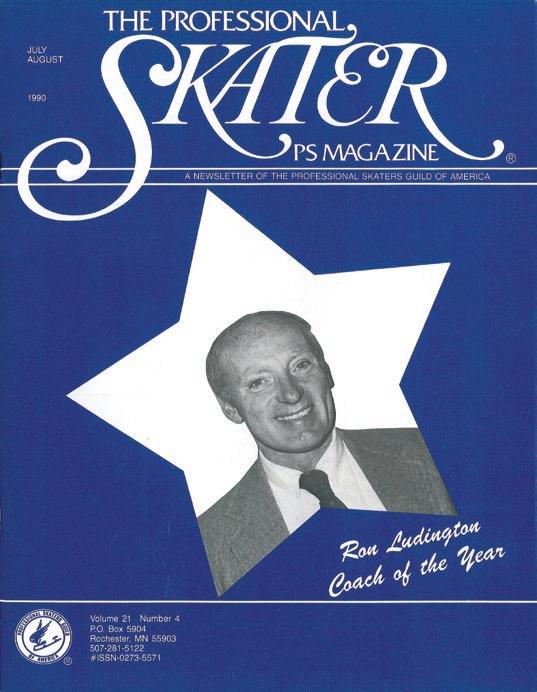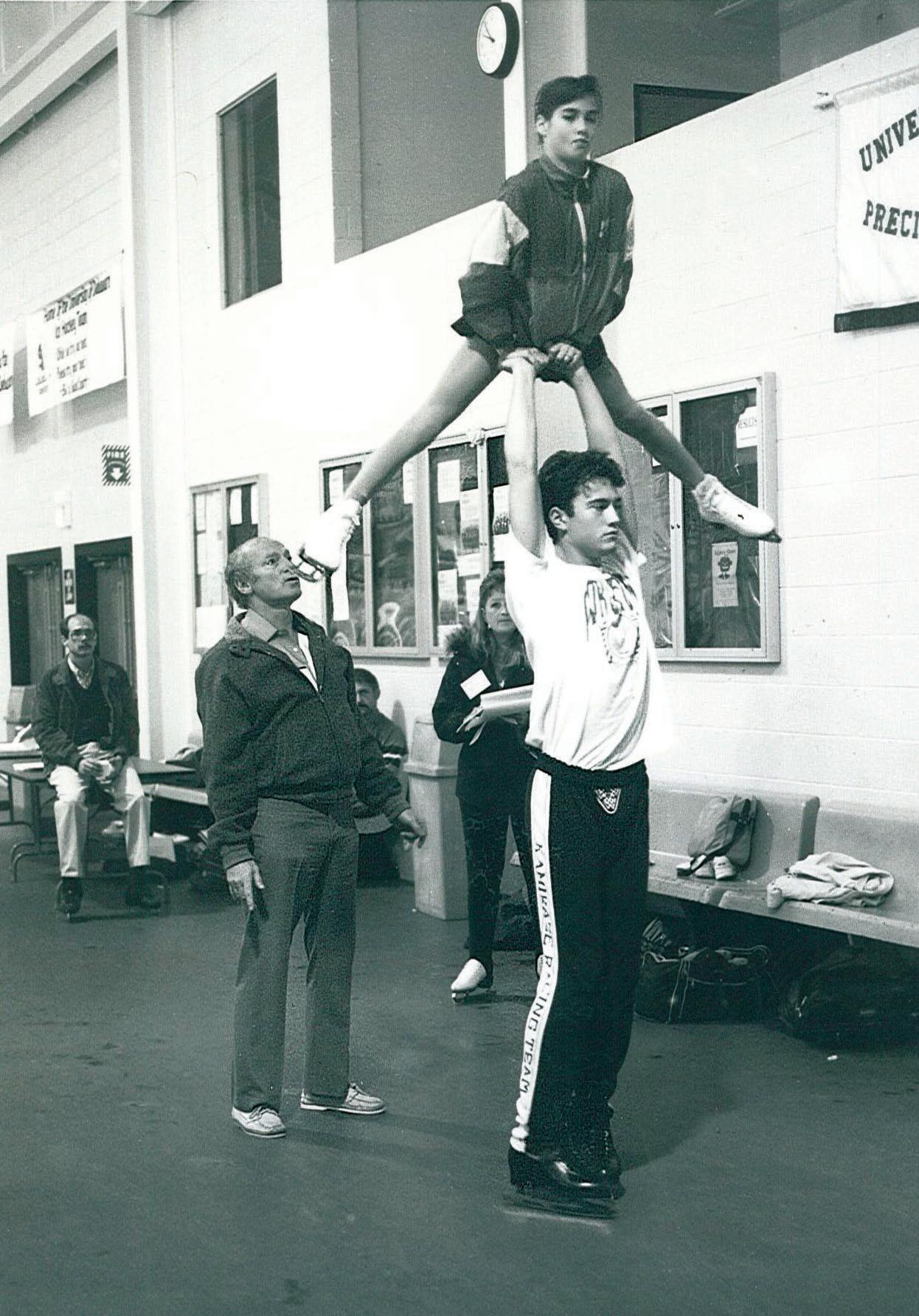
4 minute read
Longevity in Teaching and Coaching Figure Skating
Figure skating legend Ron Ludington, a friend, coach, mentor, story teller, and icon recently passed away. In honor of his memory, this is a reprint of his article from the May/June 2000 issue of PS Magazine in which he gives advice to coaches on surviving in the sport and profession.
BY RON LUDINGTON, MFF, MP, MDFD, LEVEL VIII RANKING
Advertisement
When I was asked to do this article, I had to think very hard about what has kept me going in this profession. Forty years of teaching and coaching is a long time. I have certainly had my ups and downs during that time but on the whole it has been quite successful.
Ever since I started teaching I have treated it like a business. I have always kept good records and my clients have always received bills on a regular two-week basis. They would much rather have it done that way than receive an enormous bill after a couple of months. Many coaches make this mistake and they pay the price down the road by not being paid the full amount that is owed to them. In my case, I keep records so complete that none of my parents question their bills.

Ron Ludington was honored as the 1990 PSGA Coach of the Year
When booking lessons with students, I treat all of them the same. For example, if I have six senior pairs, they all get the same number of lessons (one a day) regardless of their ranking. The skaters appreciate this and it creates great harmony. The minute you start favoring one skater or team over another you ask for trouble. Don’t do it! Life is too short.
I spend very little time talking with parents. Not because I don’t like them but because there are so few hours in a day. I can’t be effective with my teaching when I’m distracted. If there is a problem I will discuss it with them but I don’t go looking for problems. In the evenings at home, I discourage phone conversations pertaining to students. That’s my time to get away from the business of teaching and coaching.
I’ve always been big on outside activities. At present its golf and in the past it was water skiing, sport fishing, radio controlled model airplanes, and many other hobbies. I have always taught many hours in a day and I don’t want my job to consume me. I don’t need stress and my hobbies help me to eliminate this problem.

Skater's Edge, 1990
There are times when I don’t feel like pushing myself. Regardless, I make myself work hard to get rid of the tendency to “burn out”, which I am sure every teacher or coach has experienced. It’s a mental thing but it does happen. Vacations are great for that problem at which point I’m ready to come back to work.
Something that has been important to me is that I teach all levels and all disciplines. This way I don’t get stale and give poor lessons.
Another point that I would like to bring up is that I don’t believe in giving free time. If a skater books a 20-minute lesson, that skater gets the full 20 minutes. If I give five minutes free lesson time to one skater, then I should be giving it to all the other students. This would only be fair and for me, impossible.
Never get caught in giving excess numbers of lessons per week to one student. If that student leaves you, there will be a big void in your schedule. It is better to have many students than just a few. Problems dealing with “I explain to my coaches have never been a big issue. I students that are have always tried not interested in teaching to step on anyone’s toes, especially when that the variety of it involved their students. I teach my disciplines they can students, they teach theirs, and we go our teach will keep them own way. There will always be the problem busy on the ice and of skaters leaving one coach to go to it is great for the another, and that’s pocketbook.” part of coaching. The best way to handle it is to be up front with coach, skater, and parents, and eventually the tension will go away.
For many years I worked in private clubs: Detroit Skating Club and the Skating Club of Wilmington for a total of 21 years. On the whole I got along very well with the board members but it had its bad moments. You teach the son or daughter of a board member and everything is wonderful. Then the teaching relationship between you and the child goes flat and guess where that leaves you? I had to work very hard at keeping my relationship with the board on a very business-like level. Many of you have to deal with club boards in your rink as well as owners of the facility so that presents a more difficult situation. It can work as long as you make them aware that your interest is what is best to keep the operation successful.
These points that I mention have a lot to do with my longevity. Certainly the income I make has a lot to do with my motivation along with a great location to teach. The successes of my skaters all contribute to the overall picture.

Ron Ludington at the 2013 PSA Conference & Trade Show in Chicago, IL.










